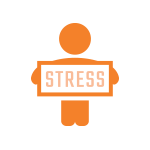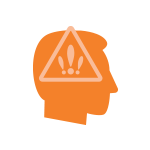We all experience worry from time to time. We all like to double-check to make sure everything is in good working order, and we all have our own little rituals. Obsessive-compulsive disorder, or OCD, is another matter entirely. It refers to a chronic and serious mental health disorder that is characterized by intrusive and in some cases debilitating obsessions and compulsions, which go well beyond normal habits or concerns. Though once considered a subset of anxiety disorders, OCD is becoming recognized as its own distinct category.
Though serious in its own right, OCD’s impact is compounded when it is paired with substance use. All too often, OCD and addiction are co-occurring disorders, meaning the symptoms of one can mask the symptoms of the other. Dual diagnosis care is required to ensure the true underlying cause is identified and treated.
Signs and Symptoms of OCD
The primary symptoms of OCD are obsessions and compulsions. The first of these terms refers to unwanted or intrusive thoughts, and the latter to unavoidable actions or rituals. Both of these are difficult or impossible for the individual to control, even if the individual knows them to be harmful. Some additional symptoms of OCD include:

Unwarranted Fears or Doubts About Whether Something is Clean, Whether You Remembered to do a Particular Task, etc.

Intense Stress When Objects are Cluttered or Disorganized

Avoidance of Situations that Might Trigger an Obsession

Repeating Actions to the Point Where They are Harmful

Arranging Items or Goods to Face a Certain Way, needlessly

Constantly Checking and Double-checking Certain Tasks or Objects
Common Areas Where OCD Affects Your Life
Obsessions and compulsions intrude into thoughts—but they do more than that: They also affect and in many cases impede day-to-day life. A few examples of how OCD can impact normal living include:
- Household chores
- Washing/hygiene
- Socialization, hand-shaking, etc.
- Repetition of prayers, mantras, etc.
- Images of hurting yourself or of being hurt
- Unwanted thoughts, including thoughts of an aggressive or sexual nature
Obsessions
Obsessions often come with certain themes—for example, one person with OCD might be obsessively frightened of dirt and germs, while the next person might have an obsession with all things being orderly or symmetrical. Some additional manifestations of obsession might include:
- Fear of contamination—and thus, an avoidance of things like shaking hands, using public bathrooms, etc.
- Doubts about whether you have locked the door, shut the garage, turned off the stove, etc.
- Anxiety over things that are not faced in the right direction, over objects that are not arranged symmetrically, etc.
- Uncontrollable thoughts about inappropriate behavior, including shouting profanities
- Distressing violent or sexual imagery recurring in your mind
- Avoidance of social situations that might make you confront your obsessions
Compulsions
Compulsions, as with obsessions, can often have themes to them—counting, checking, washing, or simply maintaining order. Note that this is very different from being a neat person or preferring cleanliness and order; true compulsions are often both unwanted and unavoidable, and might include:
- Hand-washing
- Constantly checking doors to ensure they are locked
- Constantly checking the stove or other appliances to make sure they are off
- Counting according to a certain pattern or rhythm
- Arranging household items, such as canned goods, to face a particular way
- Silently repeating a particular mantra, prayer, or phrase
The Connection Between OCD and Substance Abuse
Obsessive compulsive disorder and substance use disorders do not always go hand in hand, but they frequently do. In fact, those who have been diagnosed with OCD are in a higher risk category for addiction, including both drug and alcohol addiction. In some instances it is surely true that those who suffer from OCD turn to drugs or alcohol to self-medicate, to soothe their symptoms—and that this self-medication spirals into a struggle with addiction.
In other cases, though, OCD and substance use might arise from the same underlying psychological condition—a matter of brain chemistry or past trauma. Dual diagnosis care is needed to determine the true heart of the issue.
What Causes OCD?
Our understanding of what causes OCD has advanced significantly, even over the past few years. Essentially, it is an issue of the brain’s “wiring.” The circuitry of the mind is distorted in the area between the frontal lobe and subcortical areas—an issue that may also imbalance brain chemistry. As for why some people have this condition, genetics play a significant role.
Those who have OCD are at a high risk for having other co-occurring disorders, which may include eating disorders, depression, personality disorders, and more. The symptoms of these co-occurring conditions can at times mask the symptoms of OCD, making the condition that much more difficult to diagnose and to treat. Dual diagnosis care is needed to determine the underlying conditions.
Short-Term and Long-Term Effects of OCD
OCD can impact an individual’s life in a number of ways, both in the short term as well as in the long term. In the short term, OCD can affect relationships, cause difficulties at work and school, and simply making it hard to be a contributing member of society. Over the long term, meanwhile, those who struggle with untreated OCD are more likely to develop issues such as depression and anxiety. As such, it is important for those who identify the symptoms of OCD to seek treatment.
How to Cope with OCD
There are various ways to cope with OCD. The best place to begin is to receive a diagnosis. WestBridge works with participants to develop a specific recovery action plan, which included individual therapy, group counseling and ongoing participation in a support group. In some cases, medications can also be effective tools for managing the effects of OCD.
Some additional tips for coping with OCD include learning more about the disorder; finding healthy ways to channel energy, like art or fitness; and investing in relaxation and stress management techniques. Having a good support system is also vital.
Get Treatment for OCD and Substance Abuse at WestBridge Today
Obsessive compulsive disorder can seem hopeless at times—but the truth is, treatment and therapy can make recovery attainable. For men who are battling with OCD as well as co-occurring conditions, including substance use disorders, WestBridge can provide the necessary dual diagnosis care.
Learn more about the hope that is available to those with OCD—hope for freedom and for long-term recovery. Contact WestBridge today, and ask how we can provide healing and hope to you or your loved one.